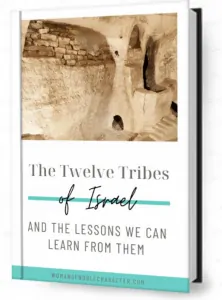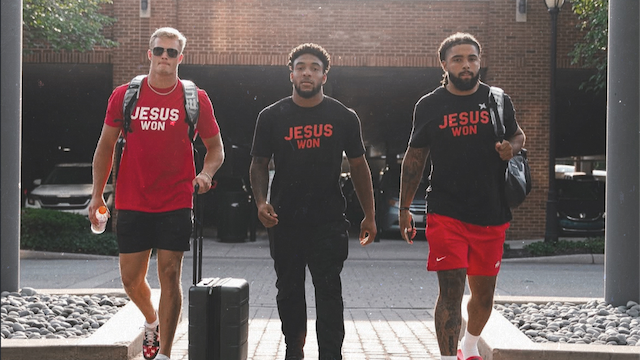The Interesting Tribe of Joseph (or is it the Tribes of Ephraim and Manasseh)?
The tenth Tribe of Israel is the tribe of Joseph, sort of. I’ll explain that in just a minute.
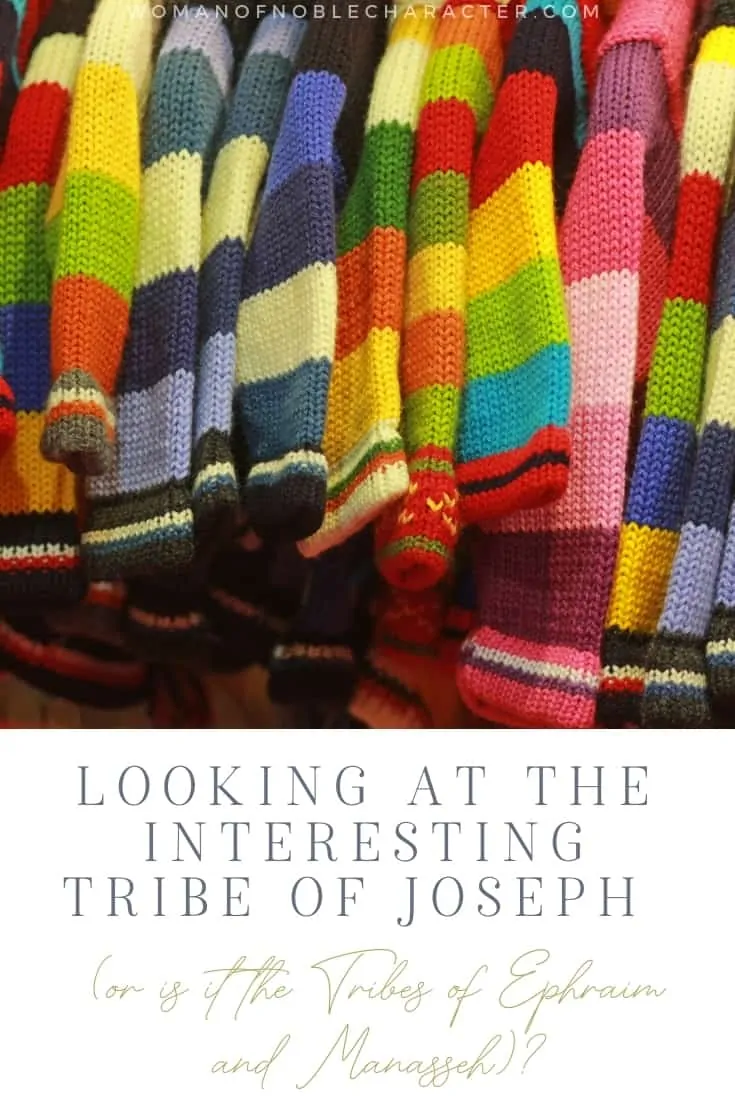
Joseph was born to Jacob’s favorite wife, Rachel, in Paddan-Aram after she had been barren for seven years. His name has deep meaning to Rachel. In Genesis 30:22-24, it reads:
Then God remembered Rachel; he listened to her and enabled her to conceive. She became pregnant and gave birth to a son and said, “God has taken away my disgrace.” She named him Joseph, and said, “May the Lord add to me another son.” – Genesis 30:22-24
Therefore, Joseph means: “increase,” or, “He will add.”
You can find everything that you are looking for about the tribe of Israel on my website, but if you would like a study of all 12 Tribes of Israel, (plus the two half tribes) you can purchase the ebook for your convenience. No ads, no pop ups and you’ll have it forever to refer to when studying the sons of Jacob. It includes videos and additional downloads. The best part – it’s only $10 for over 230 pages!! Your choice, read it here or have it forever.
Technically, there is no tribe of Joseph. Instead, Joseph received a “double blessing,” and his two sons, Ephraim and Manasseh, each became his own tribe.
For the people of Joseph were two tribes, Manasseh and Ephraim. And no portion was given to the Levites in the land, but only cities to dwell in, with their pasturelands for their livestock and their substance. – Joshua 14:4
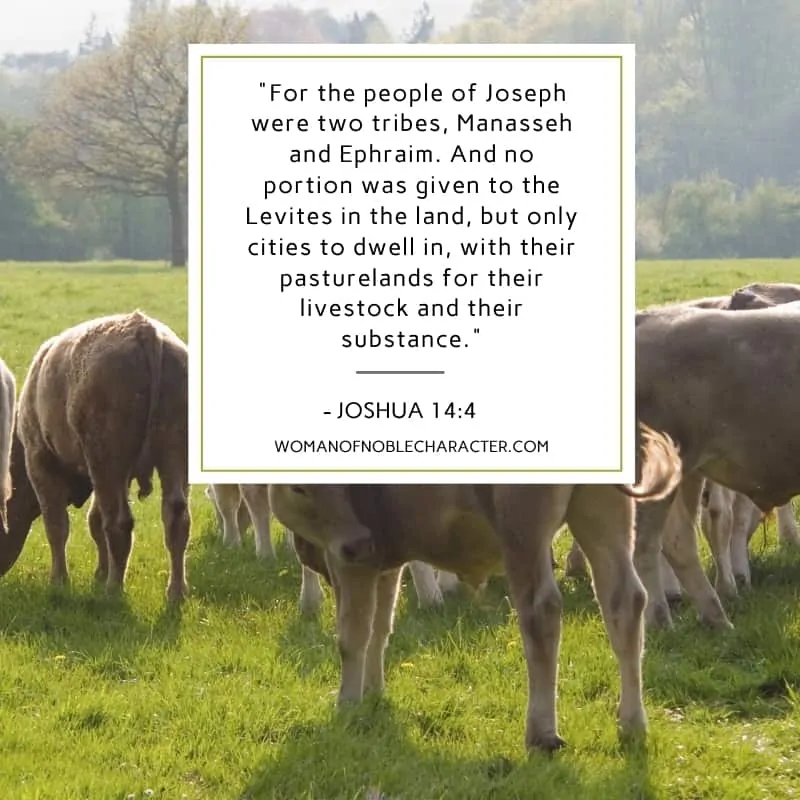
There are instances, however that the Bible does refer to a “tribe of Joseph”.
And Moses commanded the people of Israel according to the word of the Lord, saying, “The tribe of the people of Joseph is right.” – Numbers 36:5
(as well as (Numbers 13:11; Revelation 7:8)
However, when the “tribe of Joseph” is mentioned, it appears that they are referring to either the tribe of Ephraim or Manasseh, or to the “house of Joseph,” which included Ephraim and Manasseh. When Jacob directed a prophecy toward each of his sons, he gave Joseph one of the longest, double portion:
“Joseph is a fruitful vine,
a fruitful vine near a spring,
whose branches climb over a wall.
With bitterness archers attacked him;
they shot at him with hostility.
But his bow remained steady,
his strong arms stayed limber,
because of the hand of the Mighty One of Jacob,
because of the Shepherd, the Rock of Israel,
because of your father’s God, who helps you,
because of the Almighty,who blesses you
with blessings of the skies above,
blessings of the deep springs below,
blessings of the breast and womb.
Your father’s blessings are greater
than the blessings of the ancient mountains,
than the bounty of the age-old hills.
Let all these rest on the head of Joseph,
on the brow of the prince among his brothers. -Genesis 49:22–26
Post Contentshide1 Joseph and His Brothers2 Joseph Splits into Two Tribes: Ephraim and Menasheh2.1 Moses’ Blessing to Joseph2.2 Territory of the Tribe of Joseph (Ephraim and Manasseh)2.3 Symbols of the Tribe of Joseph (Ephraim and Manasseh)3 Lessons We Can Learn From the Tribes of Joseph, Ephraim and Manasseh4 Interesting Facts about The House of Joseph
Joseph and His Brothers
The story of Joseph plays an important role in the creation of the Jewish nation. It was the environment for the children of Israel’s enslavement in Egypt and, of course, the miracle of the Exodus.
Joseph, the favorite son of Jacob, was disliked by his brothers. Jacob loved Joseph more than he loved his other sons and gifted him a “coat of many colors.” This caused jealousy of his brothers toward Joseph. Joseph had two dreams where he saw his brothers bowing down to him and shared his dreams with his brothers. This turned the jealously into hatred.
The hatread escalated to the point that the brothers plotted to kill Joseph. Reuben, the oldest of the brothers, attempted to save Joseph, convincing his brothers that instead of murdering him with their own hands, they should throw him into a pit and allow him to die.
But Reuben’s had a secret plan to return later and rescue Joseph from the pit. Things, however, did not go according to plan.
Once Joseph was thrown into the pit, Reuben temporarily left his brothers. While Reuben’s was gone, Judah convinced his brothers to sell Joseph as a slave for 20 pieces of silver. By the time Reuben returned to rescue Joseph, it was too late. Joseph had already been purchased as a slave and taken away.
Joseph, as a slave, worked in Egypt for the Pharaoh’s royal butcher. He was promoted many times until he had full responsibility over his master’s household. Unfortunately, the Pharoah’s wife tried to tempt Joseph to have sex with her, but he refused. She then claimed that he had attempted to rape her and had Joseph imprisoned.
While in prison, Joseph precisely interpreted two dreams that predicted events which would happen. When Pharaoh started to have strange dreams, his advisers couldn’t understand or interpret them. They knew that Joseph had been able to interpret dreams and was summoned to Pharoah to see if he could interpret the dreams he was having.
Joseph accurately interpreted Pharaoh’s dreams as a prediction that there would be seven years of abundance followed by seven years of famine. Joseph recommended that the Egyptians stock up during the plentiful years for the coming famine. Pharaoh was so impressed with Joseph’s interpretation of his dreams that he appointed Joseph as the second in command and put him in charge of stocking up on the food for the impending famine. Joseph was even given a wife named Asenath, who was the daughter of Poti-phera the priest of On.
God also blessed Joseph with two sons while he was in Egypt. He named the oldest son Manasseh, meaning:
Joseph named his firstborn Manasseh and said, “It is because God has made me forget all my trouble and all my father’s household.” -Genesis 41:51
He named his second son Ephraim, meaning:
The second son he named Ephraim and said, “It is because God has made me fruitful in the land of my suffering.” – Genesis 41:52
Finally, when the famine arrived, people everywhere had to come to Joseph to buy food. This made Joseph very rich and even more powerful. Joseph’s gathering and storing enormous amounts of grain from each city saved Egypt during the famine. One day, several of his brothers came before him to purchase food, however, they didn’t recognize Joseph. Joseph, however, recognized them.
For a period of time Joseph harassed and tested his brothers to insure that they felt remorse for what they had done to him. He made his brothers look like thieves and had Simeon imprisoned. When he could no longer contain his emotions, he revealed his true identity and invited them to come with their families to reside comfortably in Egypt. Jacob, his wives and offspring moved to Egypt where they lived happily for the rest of their lives.
Eventually, after Joseph and his immediate family died, the treatment that the Jews received from the Egyptians deteriorated to the point that they became slaves. When the Jews left Egypt, they took the bodies of Joseph and his brothers with them to be buried again in Israel.
Joseph Splits into Two Tribes: Ephraim and Menasheh
As Jacob was dying, he shared with Joseph that God had once appeared to him and told him that additional tribes would be counted among his offspring. Jacob had twelve sons, but no additional sons to create these However, Jacob had no more children to create more tribes. Jacob understood, then, that God was telling him that Joseph’s two sons were to be considered tribes of their own.
So, the tribe of Joseph was divided into two tribes bearing the names of his sons, Ephraim and Menasheh.
Moses’ Blessing to Joseph
Moses’ blessing for the tribe of Joseph, also indicates that Joseph’s “tribe” is comprised of tribes of his two sons and is found in Deuteronomy 33:13-17.
About Joseph he said:
“May the Lord bless his land
with the precious dew from heaven above
and with the deep waters that lie below;
with the best the sun brings forth
and the finest the moon can yield;
with the choicest gifts of the ancient mountains
and the fruitfulness of the everlasting hills;
with the best gifts of the earth and its fullness
and the favor of him who dwelt in the burning bush.
Let all these rest on the head of Joseph,
on the brow of the prince among his brothers.
In majesty he is like a firstborn bull;
his horns are the horns of a wild ox.
With them he will gore the nations,
even those at the ends of the earth.
Such are the ten thousands of Ephraim;
such are the thousands of Manasseh.” – Deuteronomy 33:13-17
Territory of the Tribe of Joseph (Ephraim and Manasseh)
At its height, the territory of Joseph spanned the Jordan River. It was the northernmost Israelite group on the east of the Jordan. The region extended from the Mahanaim in the south to Mount Hermon in the north. These regions abounded in water, an important and precious commodity in Canaan. The mountainous portions not only afforded protection, but were also extremely fertile. The territory of Joseph was thus one of the most valuable parts of the country, and the Tribe of Joseph became the most powerful tribe in Israel.
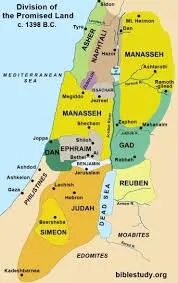
Symbols of the Tribe of Joseph (Ephraim and Manasseh)
Joseph’s tribal symbols are grapes, wheat, an olive branch, a bundle of arrows, a R’em (Aurochs) or an antelope. Sometimes the tribe is featured as a unicorn. The two symbols of Joseph mentioned in scripture are the bull (Bullock) and the unicorn. In Deuteronomy 33:17 we read:
In majesty he is like a firstborn bull;
his horns are the horns of a wild ox.
With them he will gore the nations,
even those at the ends of the earth.
Such are the ten thousands of Ephraim;
such are the thousands of Manasseh.” – Deuteronomy 33:17
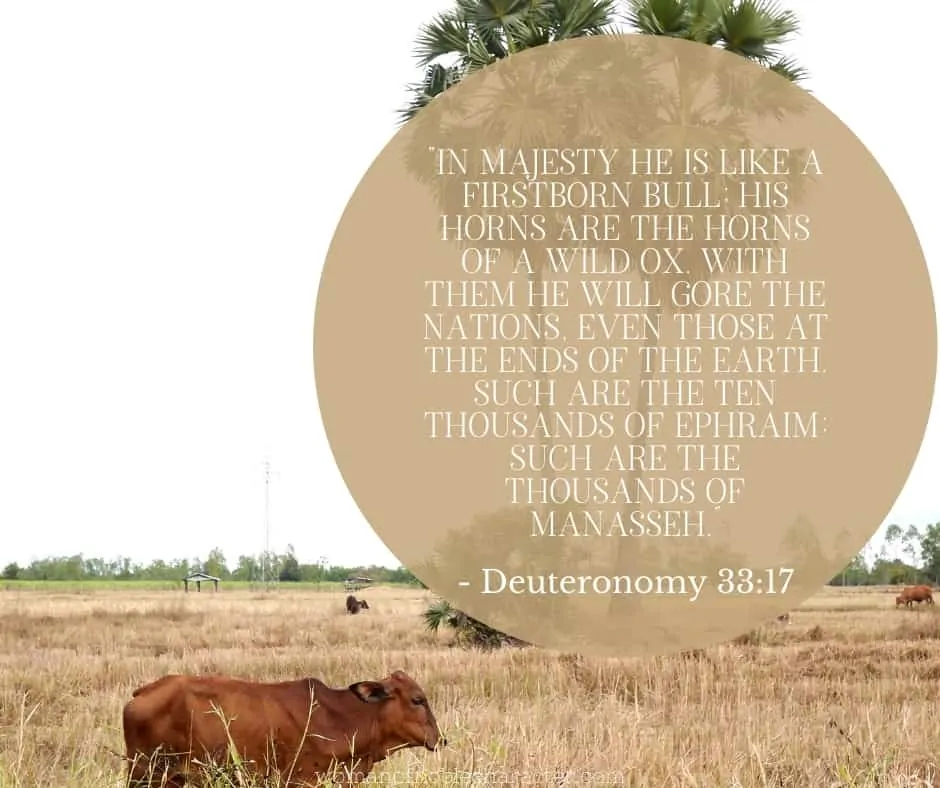
The Breastplate Gem for Joseph is a Shoham (Onyx or Emerald).
Lessons We Can Learn From the Tribes of Joseph, Ephraim and Manasseh
The House of Joseph or the Tribe of Joseph has important lessons we can all benefit from.
Love Others, Even Those That Don’t Love You
Joseph’s brothers treated him terribly due to their jealousy and hatred for him. However, when they appeared before him in Egypt to purchase food, instead of turning them away (as many would do), he blessed them and urged them to come live in Egypt.
Be Strong in Your Faith
Throughout all of the hardships Joseph faced, his strength was compared to a bow that remained steady. His faith did not fail; He stood his ground and emerged successful. Joseph maintained both his integrity and his comfort through all his trials, bearing all his burdens with an invincible resolution, and did not sink under the weight of them. The source of this strength was the hands of God, who was always present to strengthen him. Joseph reminds us that all our strength for resisting temptations and bearing up under afflictions comes from God. His grace is sufficient, and His strength is perfected in our weakness.
But he said to me, “My grace is sufficient for you, for my power is made perfect in weakness.” Therefore I will boast all the more gladly about my weaknesses, so that Christ’s power may rest on me. – 2 Corinthians 12:9
While the Enemy Attacks, God is Our Refuge and Stronghold
From his past hurts and, more importantly, by the power of God, Joseph fed and cared for God’s people, including his brothers, who mistreated him.
Joseph’s sufferings also symbolize the church in general, as well as us as believers. Christians have always been persecuted by Satan, beginning with the terrible persecution of the first century under the Romans. But even in times of peace for the church, the enemy still shoots his arrows against the saints. God, however, God protects and strengthens us.
Forgiveness is What God Commands
As mentioned above, few would forgive others for the way that Joseph’s brothers treated him. God, however, commands to forgive others as He forgives us. Joseph lived out that commandment in a bold way.
Bear with each other and forgive one another if any of you has a grievance against someone. Forgive as the Lord forgave you. – Colossians 3:13
Interesting Facts about The House of Joseph
- It is said that Joseph observed the Shabbat before the command to observe it was given.
- When the tribes divide following the death of Solomon, Jeroboam, from the Tribe of Ephraim, is made king.
- “Ephraim” oftentimes stands for the Northern Kingdom, much like “Judah” stands for the Southern Kingdom.
- After the division, “Ephraim” is accused of forsaking God, and its attempts to establish another altar are considered an act of apostasy.
- The Tribe of Ephraim is conquered by the Assyrians in 723 BCE.
- It is one of the ten lost tribes of Israel.
- In the first census in Numbers, there are 32,2000 men of Manasseh who are over 20 years old.
- At that time, Gamaliel is head of the Tribe of Manasseh.
- After Moses finishes setting up the Tabernacle, all the tribes bring offerings. Gamaliel brings the offering from the Tribe of Manasseh on the eighth day.
- In 732 BCE, the eastern territory is taken captive by the Assyrians.
- The western territory is annexed in 723 BCE.
- All the inhabitants are conquered and resettled in Assyria.
- Some believe that the Samaritans are descendants from this tribe.
